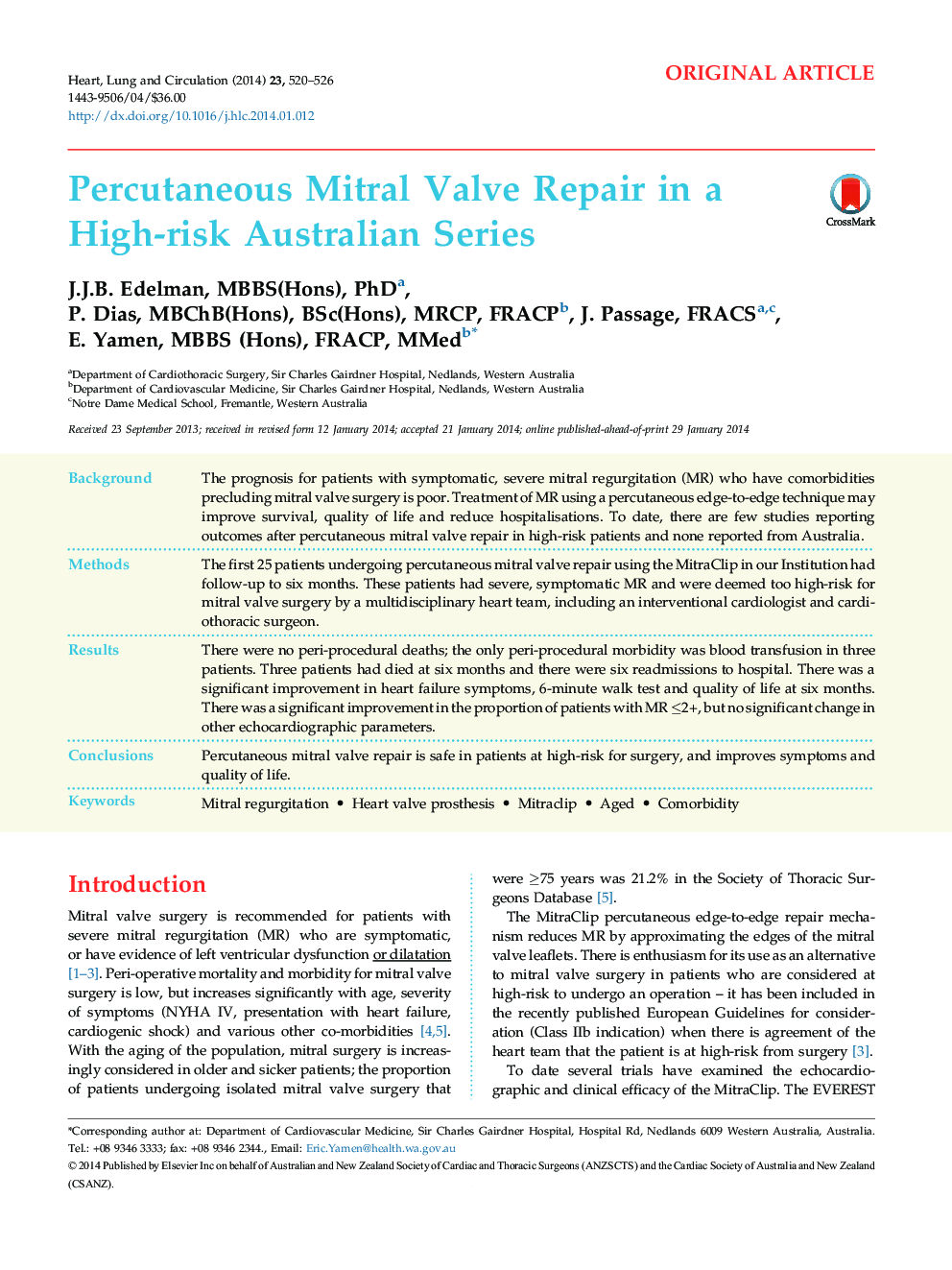| Article ID | Journal | Published Year | Pages | File Type |
|---|---|---|---|---|
| 2918039 | Heart, Lung and Circulation | 2014 | 7 Pages |
BackgroundThe prognosis for patients with symptomatic, severe mitral regurgitation (MR) who have comorbidities precluding mitral valve surgery is poor. Treatment of MR using a percutaneous edge-to-edge technique may improve survival, quality of life and reduce hospitalisations. To date, there are few studies reporting outcomes after percutaneous mitral valve repair in high-risk patients and none reported from Australia.MethodsThe first 25 patients undergoing percutaneous mitral valve repair using the MitraClip in our Institution had follow-up to six months. These patients had severe, symptomatic MR and were deemed too high-risk for mitral valve surgery by a multidisciplinary heart team, including an interventional cardiologist and cardiothoracic surgeon.ResultsThere were no peri-procedural deaths; the only peri-procedural morbidity was blood transfusion in three patients. Three patients had died at six months and there were six readmissions to hospital. There was a significant improvement in heart failure symptoms, 6-minute walk test and quality of life at six months. There was a significant improvement in the proportion of patients with MR ≤2+, but no significant change in other echocardiographic parameters.ConclusionsPercutaneous mitral valve repair is safe in patients at high-risk for surgery, and improves symptoms and quality of life.
